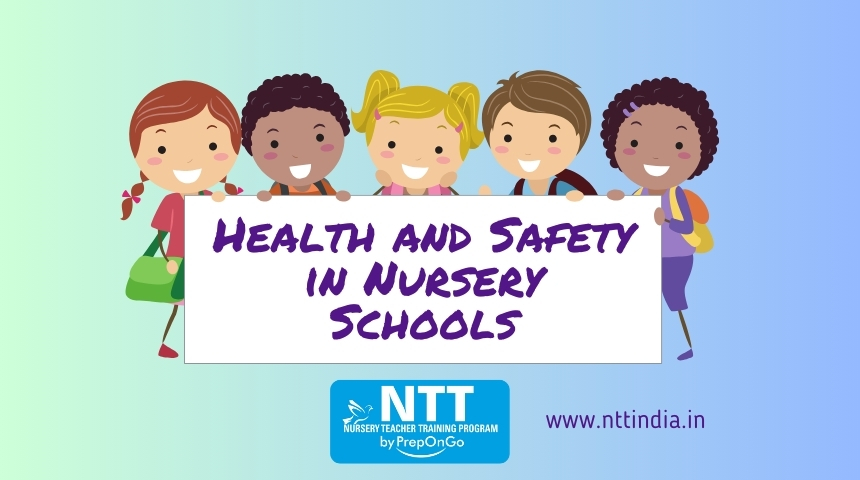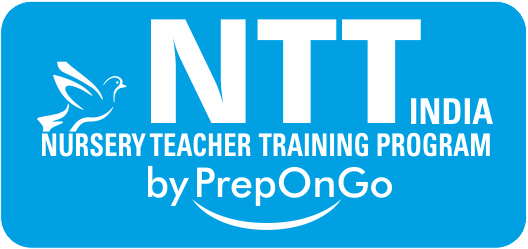Health and Safety in Nursery Schools

Ensuring the health and safety of children in nursery schools is paramount. At NTT India, we prioritize creating a safe and healthy environment where young learners can thrive. Health and safety protocols are not just about preventing accidents; they also encompass practices that promote overall well-being. In this blog, we will explore the key aspects of maintaining health and safety in nursery schools and why it is so important.
Importance of Health and Safety in Nursery Schools
Focus Keyword: Health and Safety in Nursery Schools
- Protecting Children’s Well-Being
- Young children are more vulnerable to illnesses and injuries. Implementing strict health and safety measures ensures that they are protected from potential hazards and can grow in a secure environment.
- Creating a Positive Learning Environment
- A safe and healthy setting fosters an atmosphere where children feel secure and ready to learn. When parents know their children are in a safe place, it builds trust and peace of mind.
- Compliance with Regulations
- Adhering to health and safety regulations is a legal requirement. Compliance ensures that the nursery meets the necessary standards to operate and provides a benchmark for maintaining high-quality care.
Key Aspects of Health and Safety in Nursery Schools
- Cleanliness and Hygiene
- Regular Cleaning: Daily cleaning of classrooms, play areas, and common spaces is essential to minimize the spread of germs.
- Handwashing: Teaching and encouraging frequent handwashing among children and staff helps prevent the transmission of illnesses.
- Sanitizing Toys and Equipment: Regularly disinfecting toys, learning materials, and equipment ensures a germ-free environment.
- Safety Protocols
- Emergency Procedures: Having clear, practiced emergency procedures for situations like fire, natural disasters, or medical emergencies is crucial.
- Secure Premises: Ensure that the nursery premises are secure with controlled access to prevent unauthorized entry.
- Supervision: Adequate supervision ratios ensure that children are always monitored and can receive immediate assistance if needed.
- Health Policies
- Sick Child Policy: Establishing a policy for when children are sick, including guidelines for when they should stay home and when they can return, helps prevent the spread of illness.
- Immunization Records: Keeping up-to-date immunization records for all children ensures that they are protected against common diseases.
- First Aid Training: Staff should be trained in first aid and CPR to handle medical emergencies effectively.
- Safe Play Areas
- Age-Appropriate Equipment: Ensure that playground equipment is suitable for the children’s ages and developmental stages.
- Regular Inspections: Conduct regular safety inspections of indoor and outdoor play areas to identify and rectify potential hazards.
- Soft Surfaces: Use soft surfaces under play equipment to cushion falls and prevent injuries.
- Nutrition and Food Safety
- Healthy Meals: Providing balanced and nutritious meals and snacks supports the children’s physical and cognitive development.
- Food Allergies: Be aware of any food allergies and have plans in place to prevent allergic reactions.
- Safe Food Handling: Staff should follow safe food handling practices to prevent foodborne illnesses.
- Mental and Emotional Well-Being
- Positive Environment: Creating a nurturing and supportive atmosphere helps children feel safe and valued.
- Open Communication: Encourage open communication between staff, children, and parents to address any concerns or issues promptly.
- Support Services: Provide access to support services, such as counseling, for children who may need additional emotional support.
Implementing Health and Safety Measures
- Regular Training
- Provide ongoing training for staff on the latest health and safety practices, including first aid, emergency procedures, and hygiene protocols.
- Clear Policies and Procedures
- Develop and enforce clear health and safety policies. Ensure that all staff, parents, and children are aware of these policies and understand their roles in maintaining a safe environment.
- Routine Inspections and Audits
- Conduct regular inspections and audits to ensure compliance with health and safety standards. Address any issues immediately to maintain a safe environment.
- Parental Involvement
- Engage parents in health and safety practices by keeping them informed and encouraging their participation in maintaining a safe environment for their children.
Conclusion
Health and Safety in Nursery Schools is a top priority for creating an environment where children can learn, play, and grow without unnecessary risks. At NTT India, we are committed to implementing comprehensive health and safety measures that protect the well-being of every child. By maintaining high standards of cleanliness, supervision, nutrition, and emergency preparedness, we ensure that our nursery schools are safe havens for young learners. Ensuring health and safety is not just about compliance; it’s about creating a foundation for lifelong well-being and success.
